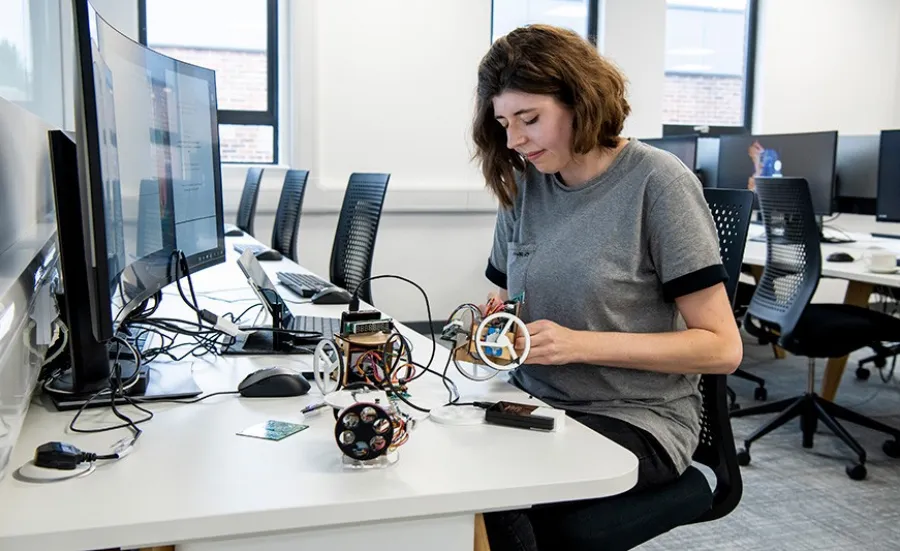Electronics and Computer Science
|
Engineering
|
Physics and astronomy
|
Chemistry and Chemical Engineering
Integrating quantum and classical sensors for long-duration inertial navigation
Navigational drift is a major bottleneck for systems operating in GPS-denied underwater, space, and subterranean environments. This project advances navigation in such conditions by fusing fast, drift-prone classical inertial sensors with stable quantum measurements. You will develop fusion algorithms, explore sensor configurations, and validate performance through simulation and hardware-in-the-loop testing.


